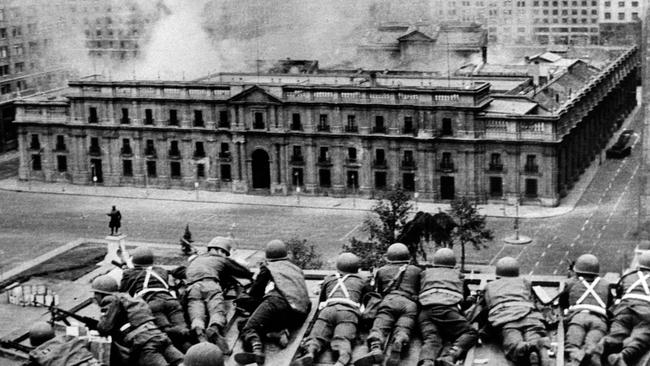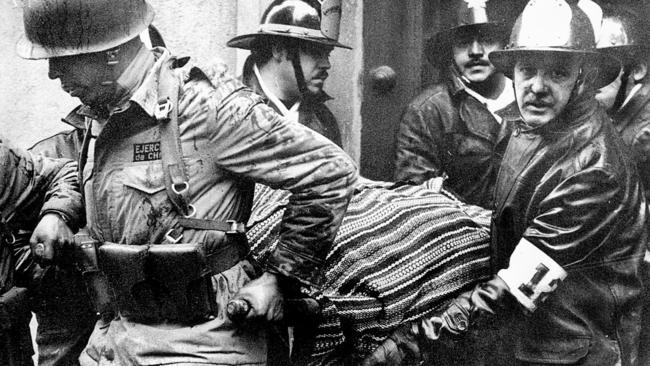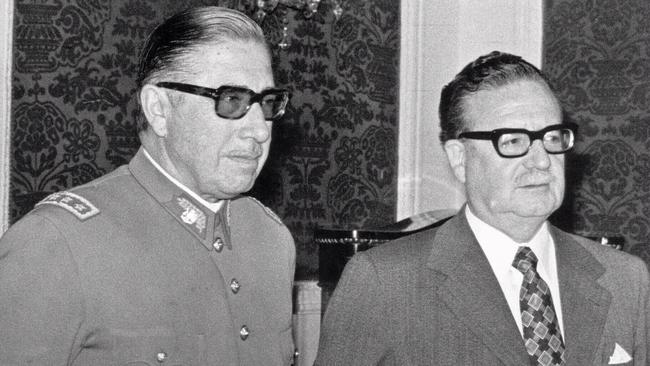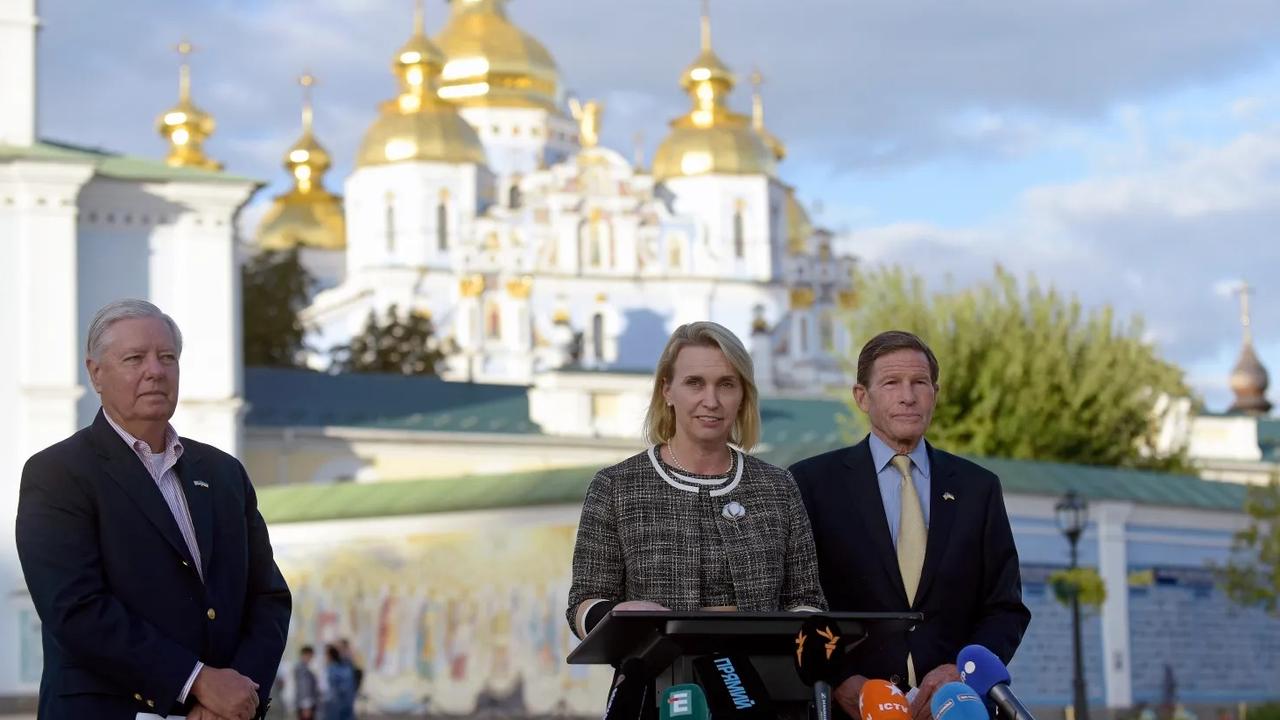Chile still politically divided 50 years after Pinochet coup
The legacy of Augusto Pinochet’s brutal dictatorship were on stark display as Chile marked 50 years since the coup that brought him to power.

The legacy of Augusto Pinochet’s brutal dictatorship were on stark display as Chile marked 50 years since the coup that brought him to power.
Commemorations of the violent US-backed ouster of Marxist leader Salvador Allende still evoke strong emotions, and police fired teargas and water cannon at protesters who vandalised the presidency on the anniversary’s eve.
Leftist President Gabriel Boric led an event to mark the historic September 11, 1973, date and stressed the need to condemn those who violated human rights “without any nuance”.
“The coup cannot be separated from what came after,” he said, referring to the 17-year Pinochet dictatorship under which more than 3200 people were killed or “disappeared” and tens of thousands were tortured.

The far-right UDI party on Monday defended the coup as “inevitable” because of the failures of Allende’s political left.
The presidents of Mexico, Colombia, Bolivia and Uruguay were in Santiago to attend the emotional ceremony.
Poetry readings and musical performances were interrupted by a minute of silence to mark the moment the bombs started dropping on La Moneda presidential palace on the day Allende committed suicide while troops and tanks closed in.

“Today, with democracy in the world facing new authoritarian threats, it is more necessary than ever for everyone to renew their commitment to democracy,” said the late leader’s daughter, socialist senator Isabel Allende.
The 1973 coup, in a country seen until then as a bastion of democracy and stability in Latin America, reverberated around the world, and underscored covert interference by the US.
US State Department spokesperson Matthew Miller said on Monday that President Joe Biden’s government “has tried to be transparent about the US role in that chapter of Chilean history by recently declassifying documents from 1973 as the Chilean government has requested us to do”.
Chileans remain deeply divided between those who defend the coup and those who repudiate it, while many feel the anniversary is irrelevant amid economic woes and concerns over rising crime.

A survey by Cerc-Mori in May found that 36 per cent of people believe Pinochet “liberated Chile from Marxism” – the highest figure measured in 28 years of polling.
On Sunday, Mr Boric became the first president since the end of the dictatorship in 1990 to attend a commemorative march through Santiago for Pinochet’s victims.
The procession was marred by vandals causing damage to the exterior of La Moneda.
On Sunday night, 6000 women dressed in black held a peaceful vigil in the capital under the slogan “Never again will democracy be bombed” in reference to the 1973 air raids.

Led by Mr Boric, Allende’s leftist political heirs are in power in Chile today but the far-right Republican Party – Pinochet apologists – emerged the strongest from elections in May for a body tasked with drafting a constitution to replace the one that dates from the dictatorship era.
Pinochet died of a heart attack on December 10, 2006, aged 91, without stepping foot in a court.
Michelle Bachelet, a former leftist president of Chile, told a radio station on Monday that the country must “learn from the lessons of the past” at a time that politics “is a little toxic”.
She was tortured during the dictatorship, as was her father, an air force general.
Chile’s right-wing opposition has abstained from underwriting a document affirming a commitment to “defend democracy from authoritarian threats” signed by four former presidents.
AFP



To join the conversation, please log in. Don't have an account? Register
Join the conversation, you are commenting as Logout